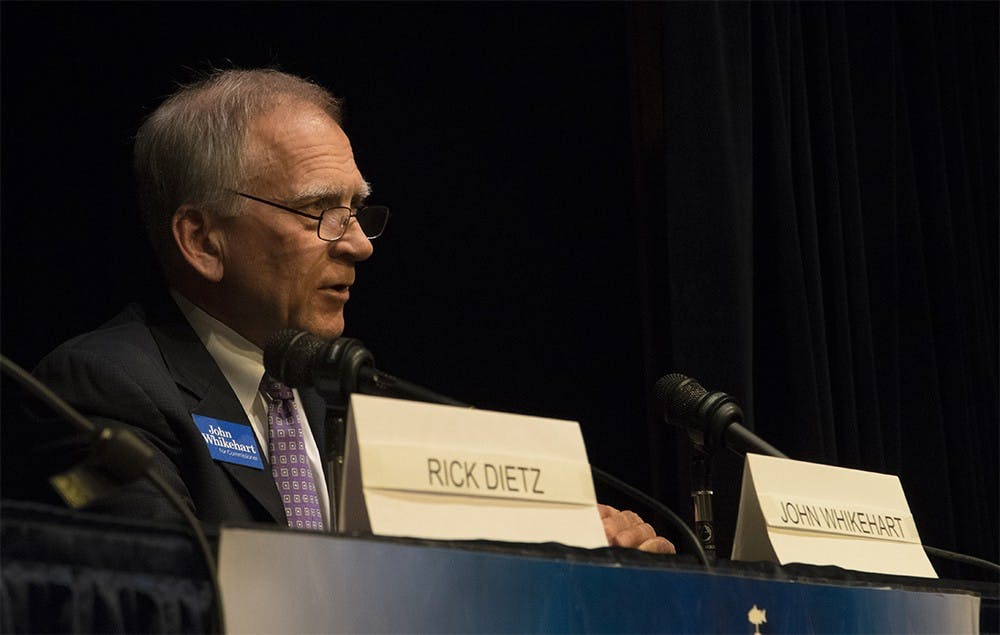In the last primary election, Monroe County came in last place for voter turnout among 92 counties in Indiana, a state that was ranked last in the nation.
Only 10.3 percent of the county’s population voted, a statistic that was bemoaned by a speaker for Democracy for Monroe County, who spoke during the county’s second democratic debate that took place Tuesday night.
It’s a statistic that suggests Monroe County residents don’t really care about who fills local positions.
Low turnout was influenced, at least in part, by the disproportionately high number of students in the area, Monroe County resident Richard Linnemeier said.
Many people register to vote during their college years, and then move out of the area, he said.
Removing them from the registry is a process that sometimes takes a while, so their absence contributes to the skewed numbers, he said.
Even so, voter turnout for local government positions is low in the state and in the country as a whole.
Numbers have dropped to lower rates than they have been in any election since World War II, according to the United States Election Project.
“I’m appalled at how disinterested people are and how little they participate,” said Richard’s wife, Christine Linnemeier, who was born and raised in the county.
Christine suggested there needs to be a change in how young people are taught about local government.
The proposal was enhanced by the demographics of the debate’s audience: mostly senior citizens, with only three young people present who were there for an IU class assignment.
Amanda Barge, a candidate for county commissioner, agreed with Christine.
“We need to engage young citizens earlier,” she said.
She suggested implementing programs to teach schoolchildren what their county government does. She also suggested using social media and reaching out to poor and disenfranchised communities.
Candidate Rick Dietz also suggested using the Internet to get more people involved, speculating that many people don’t vote in these elections because they don’t understand how the local government works.
“The offices themselves are hard to understand,” Dietz said. “In a city government, everyone reports to the mayor, while in a county government the system is more complicated with people reporting to three commissioners.”
Dietz also said people might not recognize everything local government does for them, like organizing the fire department and fixing potholes.
A third candidate for the position, John Whikehart, said transparency is important in encouraging more people to vote and get involved.
All of the candidates agreed a higher voter turnout should be a priority. In fact, all of the candidates agreed on most of the topics discussed.
They agreed on the importance of equality and on the need to enforce the Open Door Law, which requires most meetings of governing bodies of public agencies to be open to the public.
They agreed the solid waste management district shouldn’t be disbanded in Monroe County and that protecting the environment is important.
With these similar values, this race is less about policy and more about qualifications, said Bloomington resident Don Shelton.
“In the last election, people were more interested in personality than qualifications,” Shelton, a retired accountant, said. “They put people in the office of treasurer and auditor who had no qualifications whatsoever.”
At least some attendees said they felt qualifications would not be a problem in the race for commissioner this year.
All three candidates listed extensive experience and involvement with local government.
“I’m really impressed by the level of expertise and quality of candidates interested in this position,” Richard Linnemeier said.
Christine Linnemeier agreed. She said all of the candidates did so well in the debate that she couldn’t decide whom she liked best and would need to consult their websites further.
Christine and her husband said local politics are important and undervalued.






